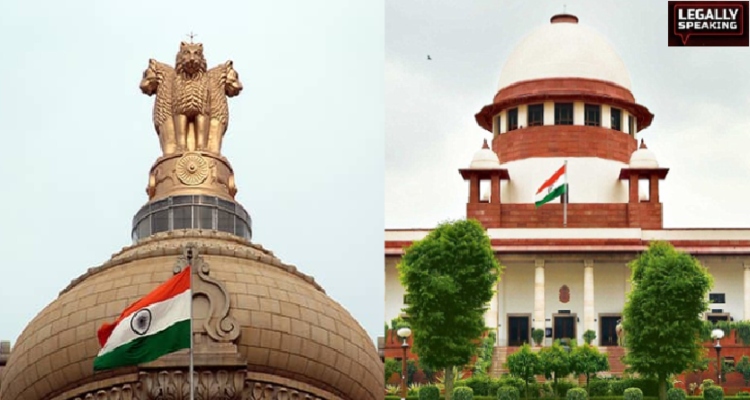
The central government has advised against linking the issue of increasing the retirement age of a judge to the quality and number of judgments delivered by him/her.
Such a move would empower the Supreme Court Collegium (SCC) which would evaluate judges at the time of giving extensions to them on an individual basis and will further erode the power of Parliament, the Narendra Modi government told the Parliamentary Standing Committee on Personnel, Public Grievances, Law and Justice.
This was disclosed in the 144th report of the committee, which was tabled before the Parliament. Supreme Court Collegium is the apex body that appoints judges to the higher judiciary. The Constitution lays down the retirement age as 62 for a high court judge and 65 for a Supreme Court judge.
The Centre’s advice came after the parliamentary committee had, in its 133rd report, asked the government to explore the possibility of increasing the retirement age for both high courts and Supreme Court judges.
Tabled in Parliament in August 2023, the committee recommended amendment of relevant Articles in the Constitution to modify the retirement age of judges. At the same time, the committee suggested an evaluation mechanism to assess the work of judges nearing retirement. It said the increase of a judge’s retirement age should be based on the assessment carried out under the appraisal system. Expressing its reservations over the suggestion, the Centre told the standing committee that, apart from empowering the judiciary through the SCC to decide on the enhancement of retirement age, the move may “result in undue favouritism and make the judges susceptible to pressures, thus impinging on their performance as impartial judges”.
Significantly, the Centre and judiciary have traded charges against each other over the appointment system, with the former claiming that the SCC has absolute control under the existing collegium system to appoint judges.
Evolved through judicial pronouncements, the collegium system has been criticised for its opacity. However, the judiciary has defended it by saying it’s necessary to maintain its independence, which is integral to the basic structure of the Constitution. The friction heightened when the top court in 2015 struck down NJAC that proposed a new appointment system. Since then, there have been regular exchanges of words between the two institutions over appointments, with each blaming the other for a large number of vacancies in HCs.
According to the Centre’s response to the panel, increasing the retirement age would “create an avoidable burden on the limited manpower in the judiciary and executive, who are involved in the appointment process.” Besides, the Centre drew attention to other measures such as transparency, accountability, and a concerted effort to fill up existing judicial vacancies needed in the appointment procedure. It also cautioned that an increased retirement age could mean an extension of service “in non-deserving cases and lead to non-performing and under-performing judges to continue”.
Another drawback is that such a move would mean the lack of regular vacancies, depriving deserving and meritorious candidates from the feeder channel that is advocates and judicial officers working in the subordinate judiciary of a chance of being a judge in the higher judiciary, the Centre has said. In case the retirement age of HC or SC judges is changed, it may set off a chain reaction, with retired judges serving in tribunals and commissions asking for a similar change in their services, the government said.
Although it admitted that increasing the retirement age of an HC judge would reduce the attraction among them for getting elevated to the Supreme Court, it also said that this could also mean a consequential demand for an increase in the retirement age of SC judges. Following the Centre’s objections, the parliamentary panel report has decided against pursuing the issue of an increase in the retirement age of judges, the 144th report said.
On to the panel’s suggestion to have regional benches of the Supreme Court, the Centre has said the matter is sub-judice and is pending in Supreme Court. The report notes Centre’s submission to the panel, which said that in their opinion to the government two former Attorney Generals had ruled out having regional benches.
A writ petition filed in the top court on the matter is still pending.




